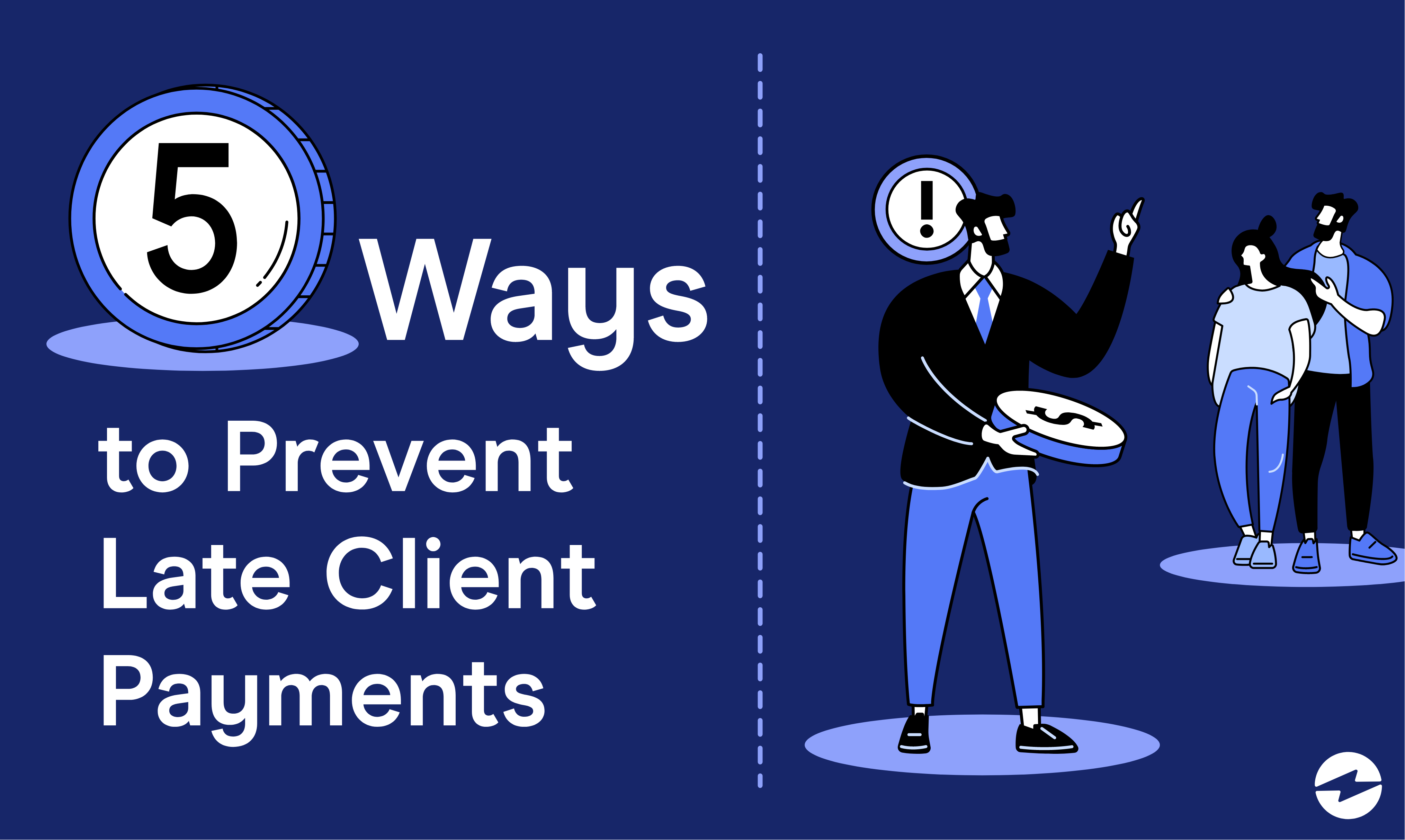Blog > 5 Ways to Prevent Late Payments from Clients
5 Ways to Prevent Late Payments from Clients
Some tactful ways to prevent late payments from ever happening
Are you doing business with a deadbeat? It happens to the best of us.
We go into a situation cheery-eyed and bright, and of course we never expect not to get what we want at the end of a deal. It’s especially awkward to broach the subject of late payments, since (at least in the United States), paying an advertised price for services is very much a standard part of doing business, and we often can’t imagine why someone would ever deprive us of what we’ve so rightfully earned.
Late payments are widespread and no laughing matter. A survey cited in this article shows 1 in 4 business owners have trouble with collecting payments, and a 2013 survey from YouGov showed that 11% of business owners nearly had to close their doors because of revenue lost due to late or missing payments.
Thankfully, as a business owner you have ways to take matters into your own hands and make late payments less frequent at the very least.
Get it in writing
This seems intuitive enough, but too much trust can be your downfall. Make it part of your standard invoicing procedure to let your clients know exactly when their payments are due and deliver them a copy of your terms in writing – even if your client is someone you know. This ensures that there’s never any doubt whether or not your clients know when their payments are due. If you must send terms in the mail (see point 5), send them via registered mail so you get a delivery receipt. If you send them in email form, turn on your read receipt option. If you ever aren’t sure about the clarity of your language in your payment terms, run it by a trusted friend or, better yet, a lawyer.

Charge interest
This may seem counterintuitive, but charging interest is a very effective way to get your clients to pay you on time. There are just a couple caveats to this: You should make sure your clients know about your interest charges beforehand – so, include them in your written terms. As well, different states put limits on the amount of interest you can lawfully charge, but, as long as you don’t charge more than 10% in a year, you should be in the clear in the eyes of your state.
Provide an incentive for early payments
Just as you can charge interest for late payments, you can incentivize your customers to pay earlier by providing a small discount for payments made within a set number of days. Be sure to include this in your written terms as well.
Consider invoice factoring
Some companies choose to outsource their invoicing to an outside company, which frees up that company’s time to do other things. If you factor your invoicing, the company in charge of the invoicing will also be in charge of chasing down payments if they’re late, so, it’s not quite the same as avoiding late payments altogether but it does ensure you won’t have to stress out about them.
Do everything electronically
The good thing about living in today’s age is that technology has made everything significantly easier than it was even ten years ago, and this includes invoicing customers. Many accounting systems (like QuickBooks, NetSuite, Macola, or Microsoft Dynamics CRM, for example) give the user the option of sending invoices via email. If you utilize QuickBooks’ integrated payment option, your emailed invoice can include a link to a secure payment portal where your customers can pay their invoices by credit card. This makes things significantly easier in the long run, as there’s no mail to get lost or slips of paper to mail back – it’s all online and done in a few clicks. Some payment systems will also allow for automatic recurring payments or even ACH transfers, so consult your processor for details on offerings like those.
 EBizCharge is proven to help businesses collect customer payments 3X faster than average.
EBizCharge is proven to help businesses collect customer payments 3X faster than average. 
